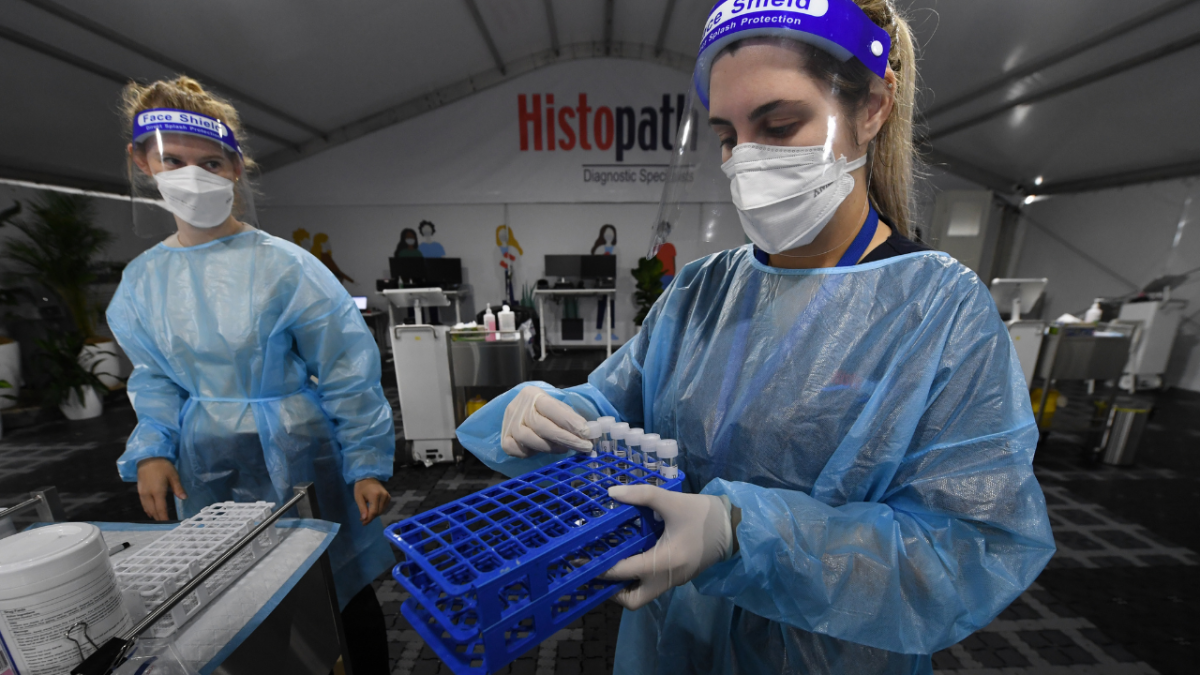
Unless you were a complete hermit over the Christmas period and didn’t see another living soul for those chaotic weeks, chances are you’ve come into contact with the spicy cough. So how the bloody heck do you find out if you did have COVID and were perhaps just asymptomatic the whole time? Let’s investigate together.
Whether it was you, your partner, your mate or your parents COVID was in abundance over the December to January period. For this reason, some Aussie health experts reckon that the number of community cases could have been as high as 10 times what was reported.
In an interview with SBS News at the beginning of January this year, University of Melbourne epidemiologist Professor Tony Blakely said “I would say, it’s five to 10 times, so let’s use five, that means we’re seeing something like 160,000 to 180,000 infections per day at the moment in New South Wales”. Wowzers, that’s a lotta COVID.
Dr Blakely believed that the number of asymptomatic cases may be larger with Omicron than previous variants.
“We knew with Delta that a third of people were probably asymptomatic,” he explained.
It might be even two-thirds with Omicron (so) they don’t even know they’ve got it”.
This stacks up against data by the International Institute of Health Metrics and Evaluation that 80-90% of all Omicron COVID cases were either mild or asymptomatic.
This means there are probably hundreds of thousands of Aussies who might have had COVID and just never known about it. So, if you’re one of those people, what should you do?
The primary way to establish whether you got infected is to have an antibody test.
The University of Sydney said that “antibodies are produced by the “memory cells” of the immune system so if you are ever challenged by the same infection again, you will be able to recognise it, respond much faster and kill the invaders”. Antibodies are essentially your body’s way of remembering how to fight a virus it has already beaten.
In the majority of situations, pure curiosity is not a good enough reason to have an antibody test in the public health system.
The vice-president of the Australian Medical Association Chris Moy told the ABC that they’re normally reserved for when healthcare workers are “trying to correlate something that’s happened previously with present-tense symptoms”. An example would be if you’re now suffering from long COVID-like symptoms but never got diagnosed as a positive case.
So while you can’t typically use the public system to get an antibody test, you can still fork out the cash from your own wallet within the private health sector.
The Melbourne Regional Medical Centre‘s website appeared to suggest it conducts antibody tests. It also states that that “many (private) health insurance plans are covering the cost of COVID-19 antibody testing”.
Australian Clinical Labs have swab collection centres in WA, Qld, Vic, SA and NSW and offer a combined COVID PCR and antibody test for $200. From the looks of their website, this service is mostly aimed at would-be travellers looking to get proof of a previous infection — think Novak Djokovic attempting to enter Australia.
If you require an antibody test for travel purposes or just personal curiosity, go right ahead and splash the cash.
On the other hand, if your doctor recommends you get one because they reckon you might have long COVID, chances are you can get one for free through the public health system.
Now if you will excuse me, imma fly to Serbia for some tennis practice.







